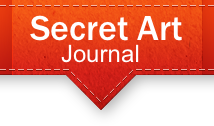

Magic Words by Daryl Rogers
“Words are, in my not so humble opinion, our most inexhaustible source of magic, capable of both inflicting injury and remedying it.” – Albus Dumbledore
Words Create Reality
As magicians, we use words to create a reality for our audience. We carefully craft and edit our scripts to say exactly what we want to say in the manner we wish to say it, with no extraneous verbiage. The words we use may tell something about ourselves, relate a story, describe our actions, or may be used in other ways to entertain as we present a magic routine. These words, if organized and presented correctly, weave a spell for our audience and create an entertaining and engaging memory of experiencing magic.
The words we use to communicate with others not only relay our perception of our reality to them, but also recreate a reality for ourselves. For example, vocalizing a state of emotion tends to bring that emotion into being. If someone asks you how you are feeling and you say “great!,” that can influence the way that you actually feel. Words have the power to create realities, not only in magic shows but in our lives as well.
THE Magic Word
Several popular folklore explanations are associated with the word – phrases in Hebrew that mean “I will create as I speak,” or in Aramaic “I create like the word.” These meanings, though perhaps less historically accurate, are more in keeping with the meaning of the word as used by modern conjurors. If, in fact, the modern conjurer uses any “magic word” at all. We see an ever-declining use of traditional magic presentations in favor of modern, post-modern, and “organic” performances that deliberately avoid most, if not all, pretensions to classic magic style.
Magic needs a causality, and that is the essence of what the magic word invokes. What is your causality? The waving of a Sharpie? The muttering of a double entandre? A witty bon mot? You need to ask yourself if those choices are any more effective to your audience than the traditional, known, and acknowledged “true” magic word of abracadabra. If you take some time to explain the meaning of the word to your audience, perhaps that will help create a memory of your magic long after the show is over.
Create YOUR Reality
For the past several years I have been following Dean Larry Hass’s suggestion to complete a New Year’s assignment. It is similar to a list of New Year’s resolutions, but it is more than that. Let me share my version of it with you so you can benefit from its potential.
You begin with a review of how well you did last year and list all the significant accomplishments you have achieved. Next, set three personal and three business goals for the new year. Keep in mind that choosing very specific words while mapping out your goals is of utmost importance. Print the list and put it where you can see it. Study your list daily, and if you like, read it out loud. Focus your attention on the words you have chosen and take action steps to help bring your goals into reality.
As you begin the year it is a good time to bring awareness to your vocabulary and to the words that you use. If words can create reality, then what words will you use for your audience to create the reality you want them to see? What words will you use to create the kind of year you want to have? Words truly are magical. Revel in their power. Choose them and use them wisely. Let them help you create the future you wish for yourself and your audience.
Abracadabra!







